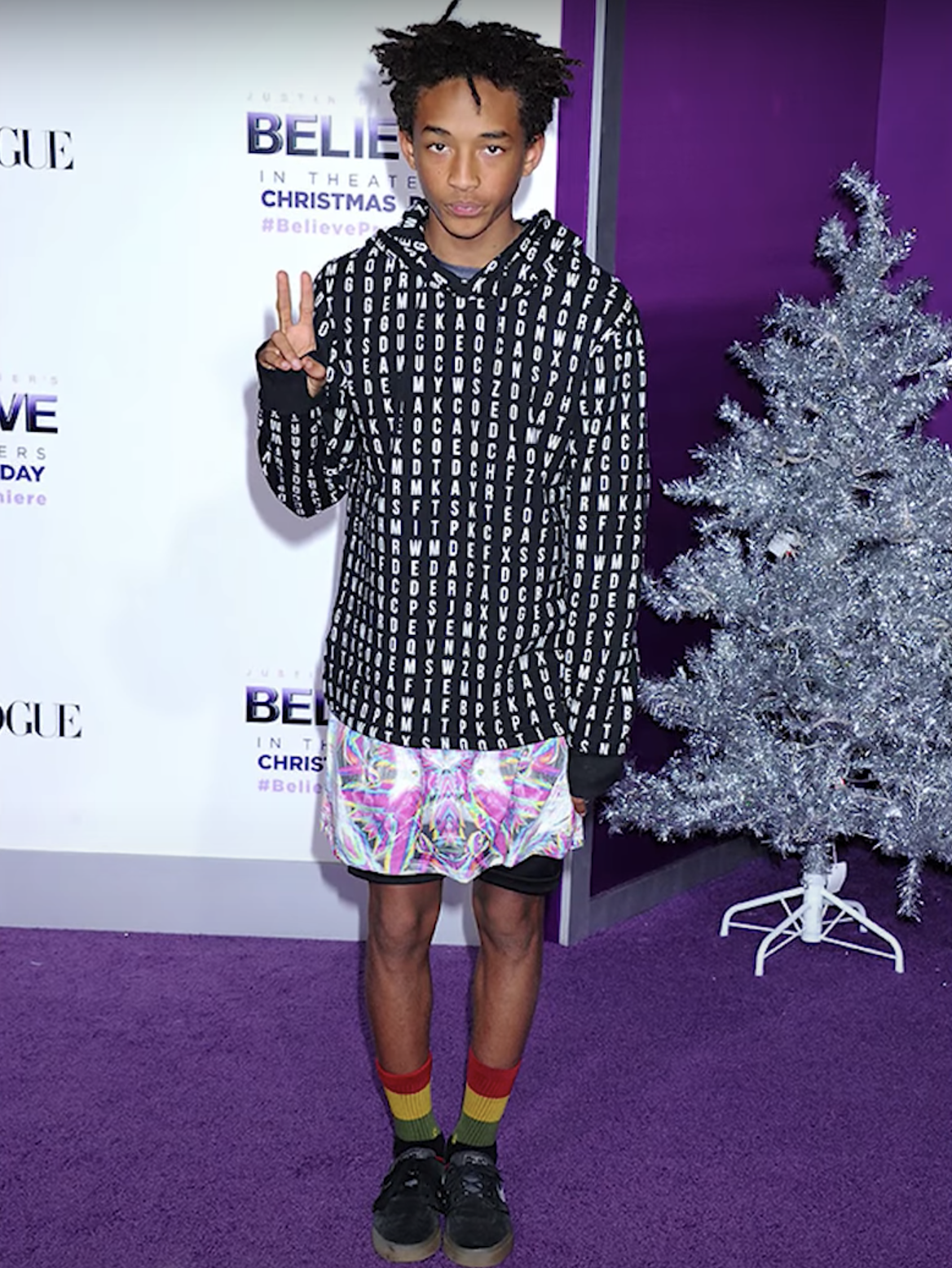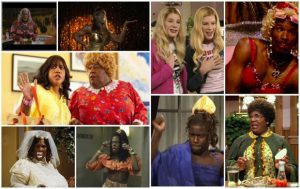Have you ever stopped to consider the societal expectations placed upon men, especially Black men, regarding their clothing choices? There seems to be an unspoken rule that restricts men’s attire to “masculine” items, often excluding the elegance and beauty of a dress. However, a growing number of Black actors are boldly challenging these norms, stepping onto the red carpet and into the spotlight in beautiful gowns. These acts are not just fashion statements; they’re powerful declarations of self-expression, challenging ingrained societal norms and redefining masculinity.

Image: tiphero.com
This article delves into the significance of Black actors daring to wear a dress, exploring its historical context, connecting it to cultural movements, and focusing on individual actors who have boldly defied expectations. We’ll look at the impact these brave choices have on breaking down barriers, inspiring others, and contributing to a broader conversation about gender fluidity and self-expression.
A Historical Context: Black Masculinity and Dress
To understand the significance of Black actors wearing dresses, it’s essential to acknowledge the historical and cultural context surrounding Black masculinity. For centuries, Black men have faced intense scrutiny and oppression, often being stereotyped and marginalized through harmful narratives that aimed to restrict their agency and expression. These narratives often portrayed Black men as hypermasculine, aggressive, or dangerous, forcing them into limited expressions of their identity.
In the context of dress, the history of Black men wearing dresses is deeply intertwined with the evolution of Black culture. During the early 20th century, as Black men and women sought greater societal and political equality, flamboyant fashion emerged as a form of resistance and cultural expression. The flamboyant clothing choices of early jazz musicians, such as Louis Armstrong and Duke Ellington, often defied conventional norms, using clothing as a means of expressing artistic freedom and challenging societal constraints.
However, this expression of Black masculinity through clothing was often met with criticism and resistance. In the 1950s and 60s, the Civil Rights movement brought increased visibility to the fight for racial equality. However, despite this progressive movement, the “respectable” Black male image remained heavily influenced by the pervasive desire for assimilation into predominantly White society. This often meant adhering to a narrow definition of masculinity and conforming to White norms, including fashion choices.
Black Actors Breaking Barriers: A Celebration of Self-Expression
From the 1970s onwards, a growing number of Black actors began challenging the limitations imposed on them by societal expectations through their clothing choices. This shift, fueled by the Black Power movement and the emergence of African-American cinema, allowed for greater exploration and expression of Black identity on screen and off.
One of the early pioneers of challenging these norms was Bill Cosby, who proudly sported colorful outfits and patterned shirts throughout his career, refusing to conform to the bland and predictable dress code often expected of Black male entertainers. This move, subtle yet impactful, challenged the notion that Black masculinity needed to be muted or unassuming.
The Modern Era: A New Wave of Expression and Acceptance
In recent years, a new generation of Black actors has embraced a wider range of sartorial choices, shattering the restrictive boundaries of masculinity. These actors, confidently stepping onto red carpets and into the spotlight, have used their platform to explore gender expression and redefine the very essence of masculinity. From the vibrant patterns and bold cuts sported by Donald Glover, Lil Nas X, and Harry Styles, to the striking elegance of the menswear-inspired dresses worn by Ezra Miller and Jaden Smith, these actors are redefining masculinity through their sartorial choices.
The impact of these brave choices is undeniable. They are contributing to a broader discourse around gender identity, challenging traditional notions of masculinity, and inspiring others to express themselves authentically.

Image: thyblackman.com
The Power of Choice: An Individual’s Right to Self-Expression
The significance of Black actors wearing dresses transcends mere fashion choices. It embodies self-expression, the freedom to choose, and the rejection of societal constraints. By challenging the status quo, these actors are encouraging a cultural shift, opening up the conversation on gender fluidity and accepting individuals for who they are, regardless of their attire.
The act of wearing a dress isn’t just about fashion; it’s about challenging the very fabric of societal norms, dismantling the limitations imposed on men, and celebrating individuality. It’s about embracing the spectrum of human expression and allowing for a more diverse and inclusive understanding of masculinity.
The impact of these brave choices resonates far beyond the world of entertainment. These actors are contributing to a broader cultural conversation, inspiring young people of all genders to break free from limited expectations and embrace their own unique identities.
The Future of Masculinity: A Shift in Perspective
As more and more Black actors, celebrities, and figures challenge traditional notions of masculinity, there’s a growing sense of acceptance and inclusivity. This shift in perspective is invaluable, encouraging a deeper understanding and appreciation for diversity, challenging societal norms, and allowing individuals to define themselves free from the confines of outdated expectations.
The future of masculinity is one of fluidity, embracing the many facets of human identity and allowing for greater expression and individual agency. The brave choices of Black actors, their refusal to conform, and their commitment to self-expression are paving the way for a more diverse, inclusive, and authentic future, one where individuals are free to explore their identity and express themselves without judgment or limitations.
All Black Actors Who Wore A Dress
https://youtube.com/watch?v=IiNlhS3cs8s
Conclusion
The act of Black actors wearing dresses is a powerful statement of self-expression, challenging restrictive societal norms and redefining masculinity. These bold choices are contributing to a broader cultural conversation around gender fluidity and challenging the limitations imposed on men, particularly Black men. By embracing their individual identities, these actors are inspiring a new generation to embrace the full spectrum of human expression. The future of masculinity is one of acceptance, inclusivity, and the celebration of individual uniqueness, a future shaped by the courage and self-expression of those who dare to challenge the status quo.






